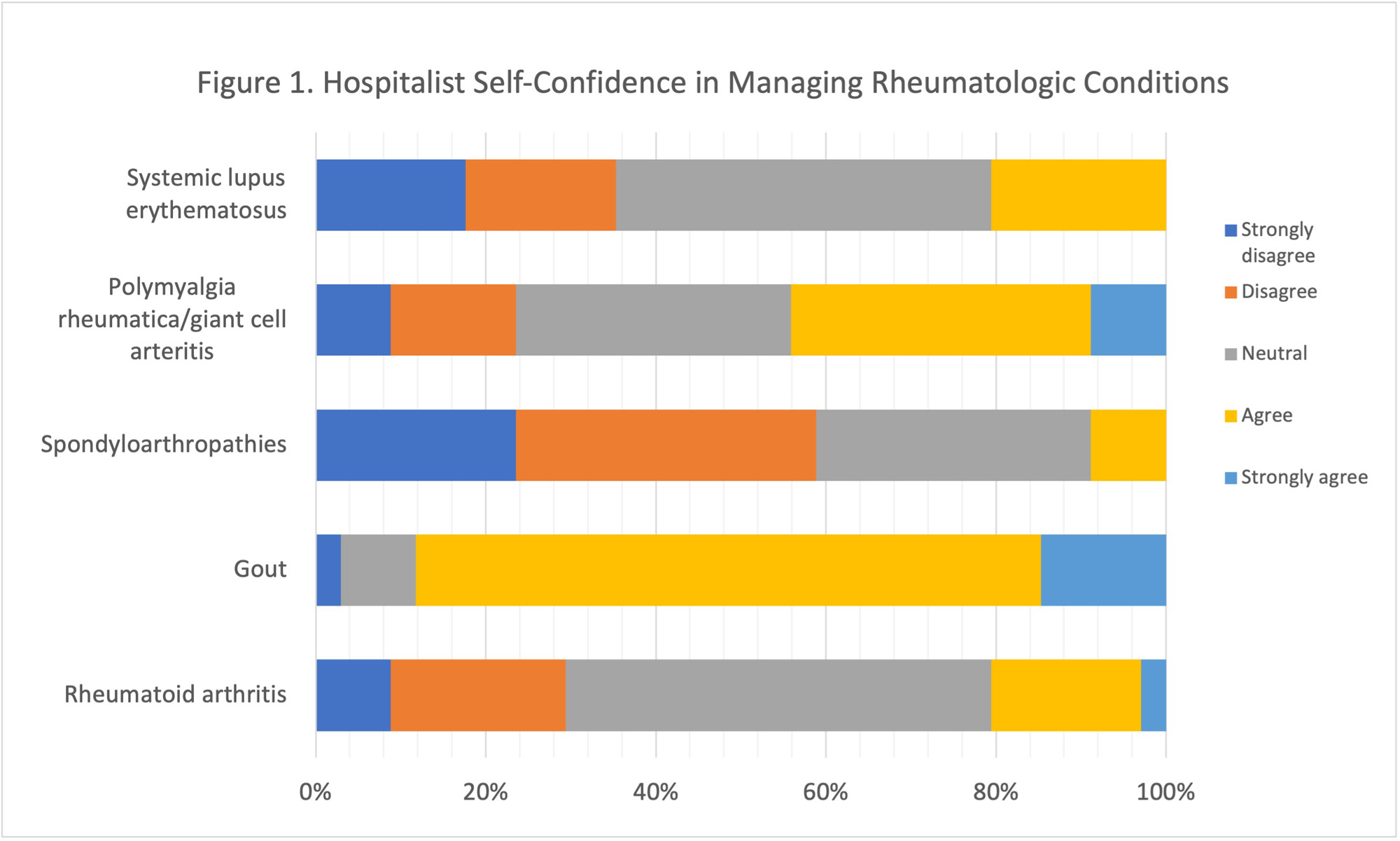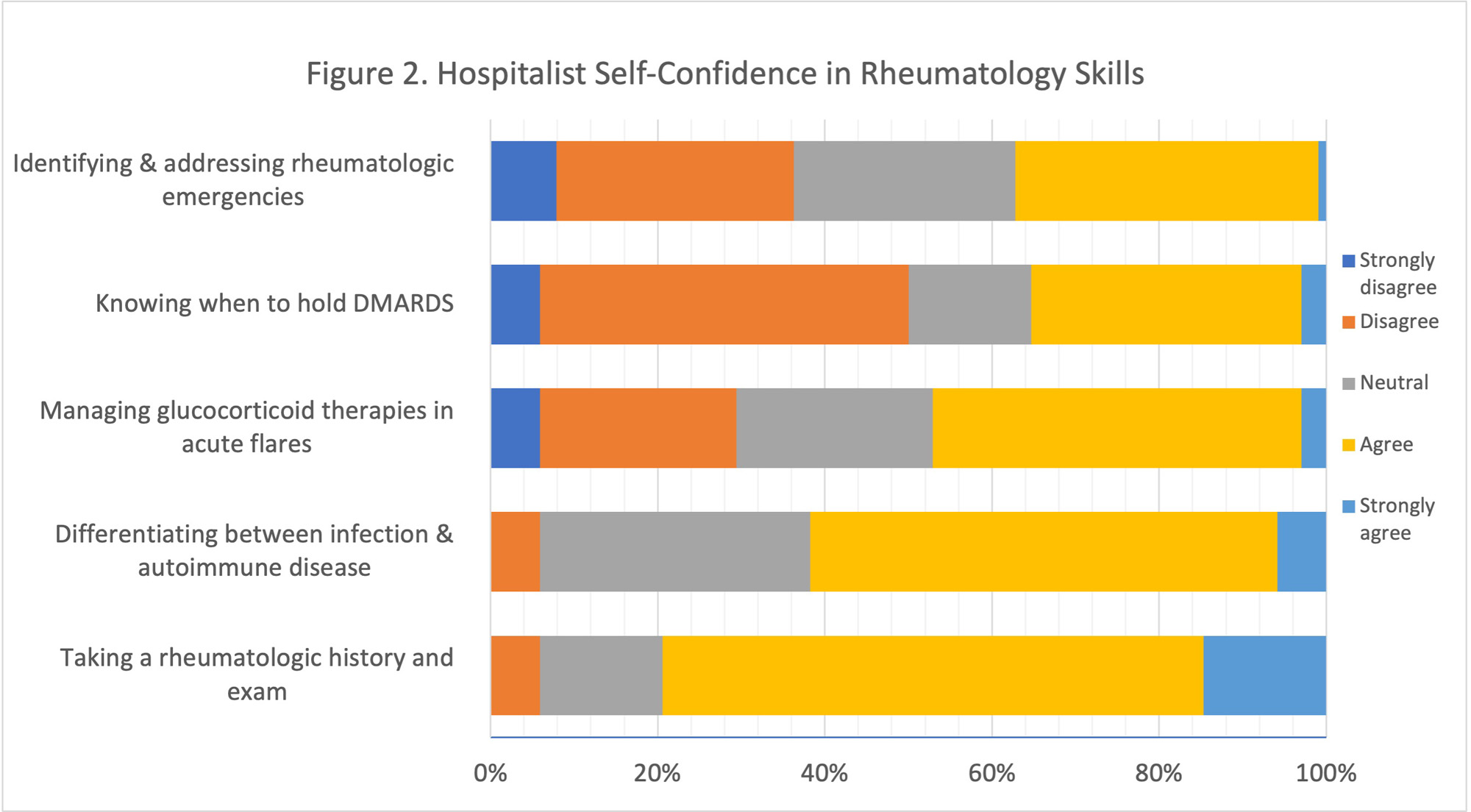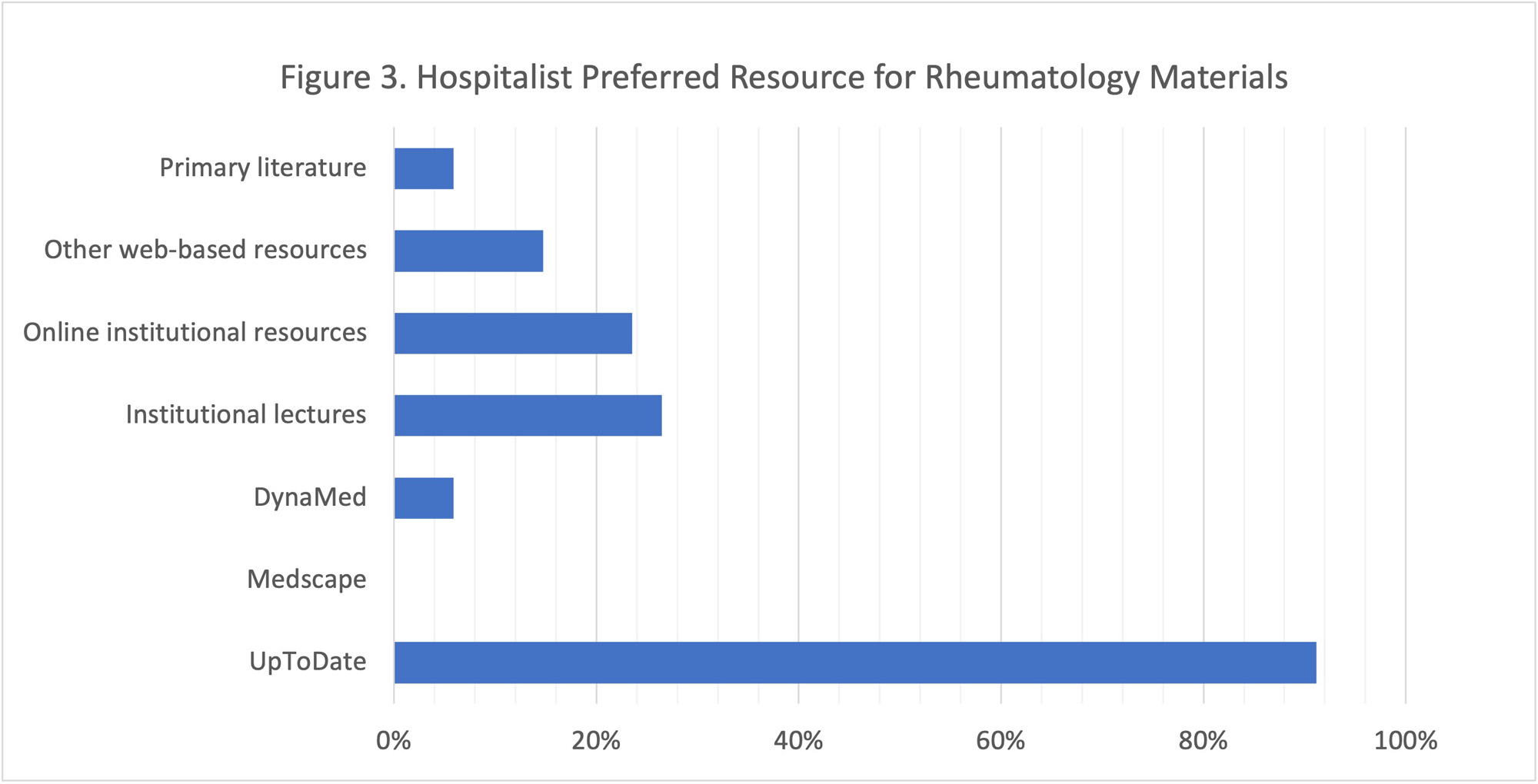Session Information
Date: Tuesday, November 14, 2023
Title: (1895–1912) Measures & Measurement of Healthcare Quality Poster II
Session Type: Poster Session C
Session Time: 9:00AM-11:00AM
Background/Purpose: Healthcare utilization, including hospitalization, is high among patients with rheumatic musculoskeletal diseases (RMD). As the primary care providers during admission, hospitalists play a key role in improving care of RMD patients, and their role will be ever more important given the projected workforce shortage of rheumatologists, especially in resource limited and rural areas. We assessed academic hospitalists confidence levels, interests, and preferred method of learning to identify educational needs and opportunities to improve care of patients with RMD.
Methods: Hospitalists at a single large tertiary academic center participated in an online survey developed based on consensus between two rheumatologists and one hospitalist. Demographics of sex, years of experience, and exposure to rheumatology curriculum were obtained. Using a five-point Likert scale (1=strongly disagree, 5=strongly agree) hospitalists rated their level of confidence in managing five common RMD conditions: rheumatoid arthritis, gout, spondyloarthropathies, polymyalgia rheumatica/giant cell arteritis and lupus. They also rated confidence levels in five skills related to inpatient care of RMD patients: performing a rheumatologic history and exam, differentiating between acute infectious and autoimmune conditions, identifying rheumatologic emergencies, managing steroid therapy in acute rheumatic flares, and knowing when to hold DMARDs. We also asked open-ended questions to collect qualitative information on individual interest, perceived challenges, and preferred learning methods in rheumatology.
Results: This is an ongoing study, and we report preliminary data from 34 completed responses where the survey response rate was 26%. Half (53%) of the respondents had ≥ 5 years of experience working as hospitalists and 32% reported minimal training in rheumatology. Half reported caring for > 10 RMD patients on average each month. Hospitalist confidence in managing gout was highest, with 97% rating neutral or greater (Figure 1). Confidence in managing lupus and spondyloarthropathies were lowest, with 65% and 41% rating neutral or greater, respectively. Hospitalists were not confident in identifying rheumatologic emergencies or knowing when to hold DMARDs with 36% and 50% reporting less than neutral, respectively (Figure 2). Most were interested in learning about lupus and its complications, rheumatologic emergencies, and understanding appropriateness of rheumatology consultation. Almost all (n=31) hospitalists reported using UpToDate as their preferred resource for rheumatology (Figure 3).
Conclusion: Hospitalists reported caring for a fair number of RMD patients, but they had minimal training and knowledge gaps in certain rheumatologic conditions and skills related to the care of hospitalized RMD patients. They expressed interest in rheumatologic learning opportunities and understanding how to best engage rheumatologists. Further studies are needed to develop educational resources and guide interdisciplinary collaboration between hospitalists and rheumatologists to improve the care of RMD patients in the inpatient setting.
To cite this abstract in AMA style:
Sung L, Young A, Lee J. Assessment of Hospitalist Confidence Levels in Management of Rheumatic Conditions to Identify Potential Knowledge Gaps [abstract]. Arthritis Rheumatol. 2023; 75 (suppl 9). https://acrabstracts.org/abstract/assessment-of-hospitalist-confidence-levels-in-management-of-rheumatic-conditions-to-identify-potential-knowledge-gaps/. Accessed .« Back to ACR Convergence 2023
ACR Meeting Abstracts - https://acrabstracts.org/abstract/assessment-of-hospitalist-confidence-levels-in-management-of-rheumatic-conditions-to-identify-potential-knowledge-gaps/



